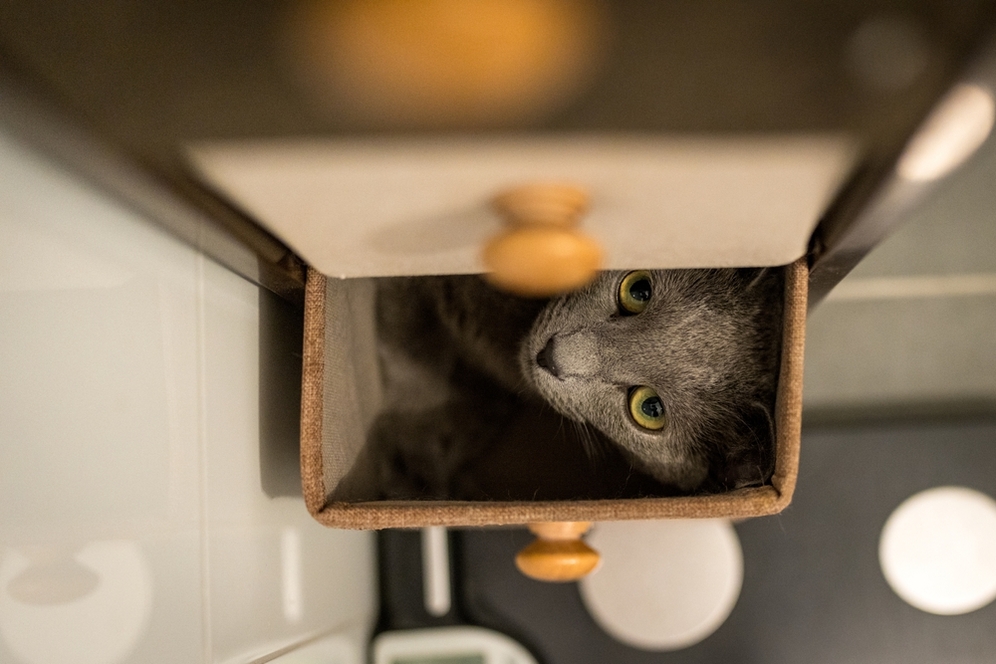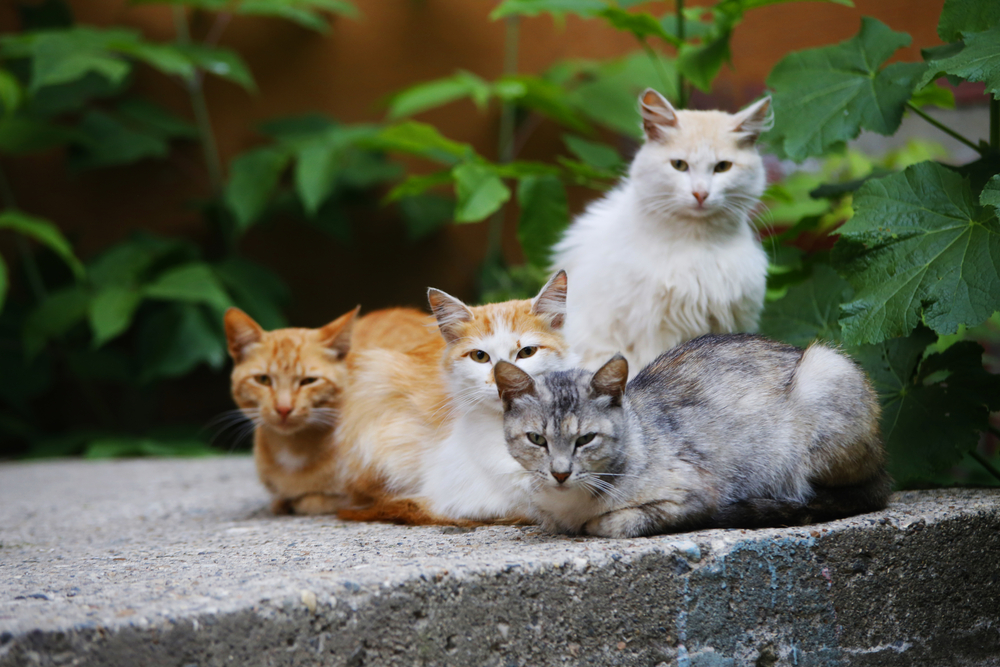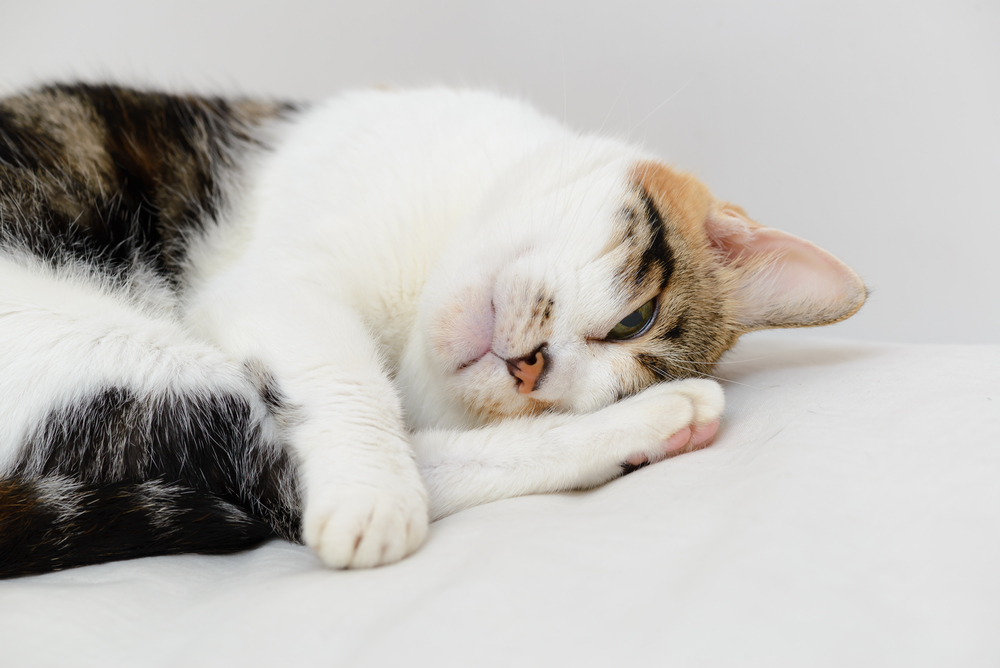Quick Takeaways
• Chocolate, candy, and wrappers are toxic to cats and must be kept out of reach.
• Costumes can restrict movement and cause stress—avoid dressing up cats.
• Open doors, strangers, and noise increase the risk of escape or anxiety.
• Candles, pumpkins, and decorations may be hazardous if chewed or knocked over.
• Colony and feral cats need secure shelters away from trick-or-treaters.
• Create a quiet, safe space indoors for cats during Halloween night.
• Download our Halloween Cat Safety Checklist (PDF) for quick reference.
• Shopping GiluCats’ Halloween Collection helps fund rescue efforts through GiluFunds.
Why Halloween Can Be Risky for Cats
Halloween is fun for people, but for cats it can bring stress, danger, and potential harm.
From constant doorbell rings to toxic candy, this holiday requires extra care to keep your
feline friends safe.
According to the ASPCA Pet Poison Control Center, calls spike during Halloween because of
candy ingestion—especially chocolate and xylitol (a common sugar substitute). At the same
time, shelters often report increased cases of missing pets due to doors left open or
frightened cats running away.
Candy and Food Hazards
Toxic treats to watch out for:
– Chocolate – contains theobromine, dangerous to cats.
– Sugar-free candy/gum – often contains xylitol, which can be fatal.
– Raisins and grapes – toxic to many pets.
– Candy wrappers – can cause intestinal blockages.
Tip: Store all Halloween candy in sealed containers and remind children not to shar
sweets with pets.
If you suspect your cat has eaten candy, call your veterinarian or the ASPCA Poiso
Control Hotline immediately.
Costume and Decoration Dangers
Costumes:
While cat costumes are popular on social media, most cats dislike being dressed up.
Clothing can restrict movement, overheat them, or cause stress. Instead, opt for festive
bandanas, themed collars, or Halloween-inspired accessories.
Decorations:
– Candles & jack-o’-lanterns: risk of burns or fire if knocked over.
– Tinsel & fake cobwebs: choking hazards and intestinal risks if ingested.
– Glow sticks: can cause drooling and irritation if chewed.
Tip: Stick to safe, cat-friendly décor that won’t tempt curious paws.
Keeping Indoor Cats Calm
Trick-or-treaters bring excitement—but for cats, it can feel overwhelming.
How to protect your cat:
– Set up a quiet safe room with food, water, litter box, and bedding.
– Play soft music or white noise to mask the sound of doorbells.
– Keep cats away from constantly opening doors to prevent escapes.
– Use pheromone diffusers to ease stress.
Download our Halloween Cat Safety Checklist (PDF) from the Cat Care Kits section fo
step-by-step prep.
Protecting Outdoor and Community Cats
Colony and feral cats are especially vulnerable during Halloween due to pranks, noise, and
increased foot traffic.
Caretaker strategies:
– Provide insulated shelters placed out of sight from busy streets.
– Feed cats earlier in the evening to reduce nighttime exposure.
– Avoid drawing attention to colony areas with decorations or visible food bowls.
– Check shelters daily after Halloween for disturbances.
For more caretaker resources, visit our TNVR Advocacy and Education category.
Key Takeaway
Halloween can be fun without putting cats at risk. By taking simple precautions, you’ll
protect your cat from toxic treats, stressful situations, and potential dangers indoors and
outdoors.
How You Can Help Beyond Your Home
At Gilu, our mission goes beyond individual households—we’re building a safer world for
every cat.
✨ Here’s how you can take action today:
– Download the Halloween Safety Checklist (PDF) for quick reference.
– Shop the Halloween Cats Collection — 15% of every purchase funds rescue work through
GiluFunds.
– Donate to the Purr-sistence Fund to help provide shelters, spay/neuter, and medical care
for cats in need.
– Share this post with friends and neighbors to raise awareness this Halloween.
Together, we can ensure cats everywhere stay safe—not just on Halloween, but every day of
the year.
References & Resources
– ASPCA Pet Poison Control: https://www.aspca.org/pet-care/animal-poison-control
– UC Davis Koret Shelter Medicine Program: https://www.sheltermedicine.com/
– Cornell Feline Health Center – Holiday Hazards:
https://www.vet.cornell.edu/departments-centers-and-institutes/cornell-feline-health-
center











0 Comments